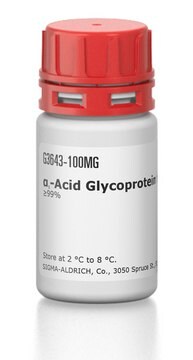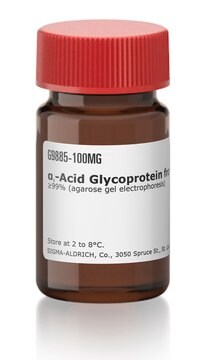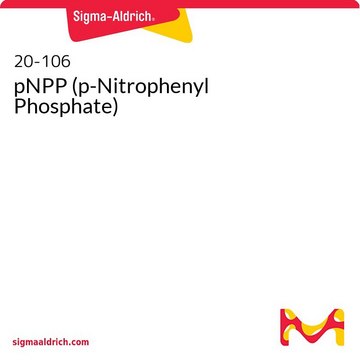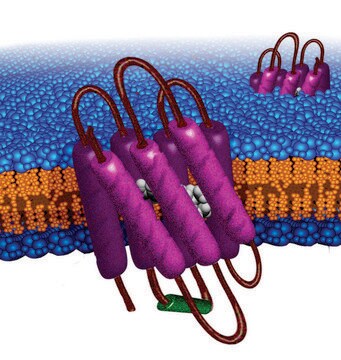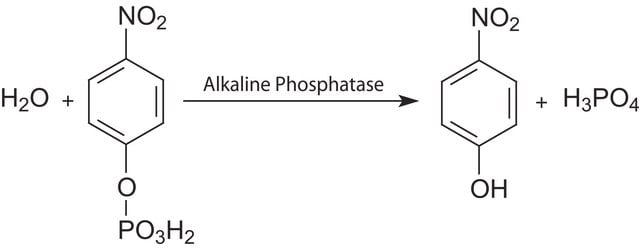A5566
Monoclonal Anti-α1-Acid Glycoprotein antibody produced in mouse
clone AGP-47, ascites fluid
Sign Into View Organizational & Contract Pricing
All Photos(1)
About This Item
Recommended Products
biological source
mouse
Quality Level
conjugate
unconjugated
antibody form
ascites fluid
antibody product type
primary antibodies
clone
AGP-47, monoclonal
contains
15 mM sodium azide
species reactivity
human, baboon (weakly)
should not react with
canine, bovine
technique(s)
dot blot: suitable
indirect ELISA: suitable
western blot: 1:10,000
isotype
IgG1
UniProt accession no.
shipped in
dry ice
storage temp.
−20°C
target post-translational modification
unmodified
Gene Information
human ... ORM1(5004)
Related Categories
General description
Monoclonal Anti-α1-Acid Glycoprotein (mouse IgG1 isotype) is derived from the AGP-47 hybridoma produced by the fusion of mouse myeloma cells and splenocytes from BALB/c mice. α1-Acid Glycoprotein (AGP) is an acute-phase plasma protein. This protein is mainly produced in the hepatocytes. AGP1 gene is mapped on the human chromosome at 9q32.
Specificity
Recognizes an epitope located on the 44 kDa subunit of denatured-reduced AGP using the immunoblotting technique. It does not cross react with human serum amyloid P component, human haptoglobin, human C-reactive protein, and human IgG.
Immunogen
human α1-acid glycoprotein (AGP).
Biochem/physiol Actions
α1-Acid Glycoprotein (AGP) associates with haptoglobin and C-reactive protein, which indicates inflammation. Higher levels of AGP is associated with various inflammatory diseases, trauma, malignancies, myocardial infarction, rheumatoid arthritis, after major surgery, and in cases of chronic pain. This protein is capable of binding and transporting basic and neutral drugs.
Physical form
The product is provided as ascites fluid with 0.1% sodium azide as a preservative.
Storage and Stability
For continuous use, store at 2-8 °C for up to one month. For extended storage, the solution may be frozen in working aliquots. Repeated freezing and thawing is not recommended. Storage in "frost-free" freezers is not recommended. If slight turbidity occurs upon prolonged storage, clarify the solution by centrifugation before use.
Disclaimer
Unless otherwise stated in our catalog or other company documentation accompanying the product(s), our products are intended for research use only and are not to be used for any other purpose, which includes but is not limited to, unauthorized commercial uses, in vitro diagnostic uses, ex vivo or in vivo therapeutic uses or any type of consumption or application to humans or animals.
Not finding the right product?
Try our Product Selector Tool.
related product
Product No.
Description
Pricing
Storage Class Code
10 - Combustible liquids
WGK
WGK 3
Flash Point(F)
Not applicable
Flash Point(C)
Not applicable
Choose from one of the most recent versions:
Already Own This Product?
Find documentation for the products that you have recently purchased in the Document Library.
B Crestani et al.
Journal of immunology (Baltimore, Md. : 1950), 160(9), 4596-4605 (1998-05-09)
Alpha1-acid glycoprotein (AGP) is a major acute phase protein in rat and human. AGP has important immunomodulatory functions that are potentially important for pulmonary inflammatory response. The liver is the main tissue for AGP synthesis in the organism, but the
Tino Hochepied et al.
Cytokine & growth factor reviews, 14(1), 25-34 (2002-12-18)
alpha(1)-Acid glycoprotein (AGP) is a protein with a molecular weight of 41-43 kDa and is heavily glycosylated (45%). Due to the presence of sialic acids, it is negatively charged (pI=2.7-3.2). AGP is an acute phase protein in all mammals investigated
Mosale Seetharam Sumanth et al.
Journal of leukocyte biology, 109(5), 915-930 (2020-10-19)
Alpha-1-acid glycoprotein (AGP-1) is a positive acute phase glycoprotein with uncertain functions. Serum AGP-1 (sAGP-1) is primarily derived from hepatocytes and circulates as 12-20 different glycoforms. We isolated a glycoform secreted from platelet-activating factor (PAF)-stimulated human neutrophils (nAGP-1). Its peptide
Lipocalin 2 in the pathogenesis of fatty liver disease and nonalcoholic steatohepatitis
Asimakopoulou A and Weiskirchen R
Clinical Lipidology, 10(1), 47-67 (2015)
Isabel Jaco et al.
Molecular cell, 66(5), 698-710 (2017-05-17)
TNF is an inflammatory cytokine that upon binding to its receptor, TNFR1, can drive cytokine production, cell survival, or cell death. TNFR1 stimulation causes activation of NF-κB, p38α, and its downstream effector kinase MK2, thereby promoting transcription, mRNA stabilization, and
Our team of scientists has experience in all areas of research including Life Science, Material Science, Chemical Synthesis, Chromatography, Analytical and many others.
Contact Technical Service